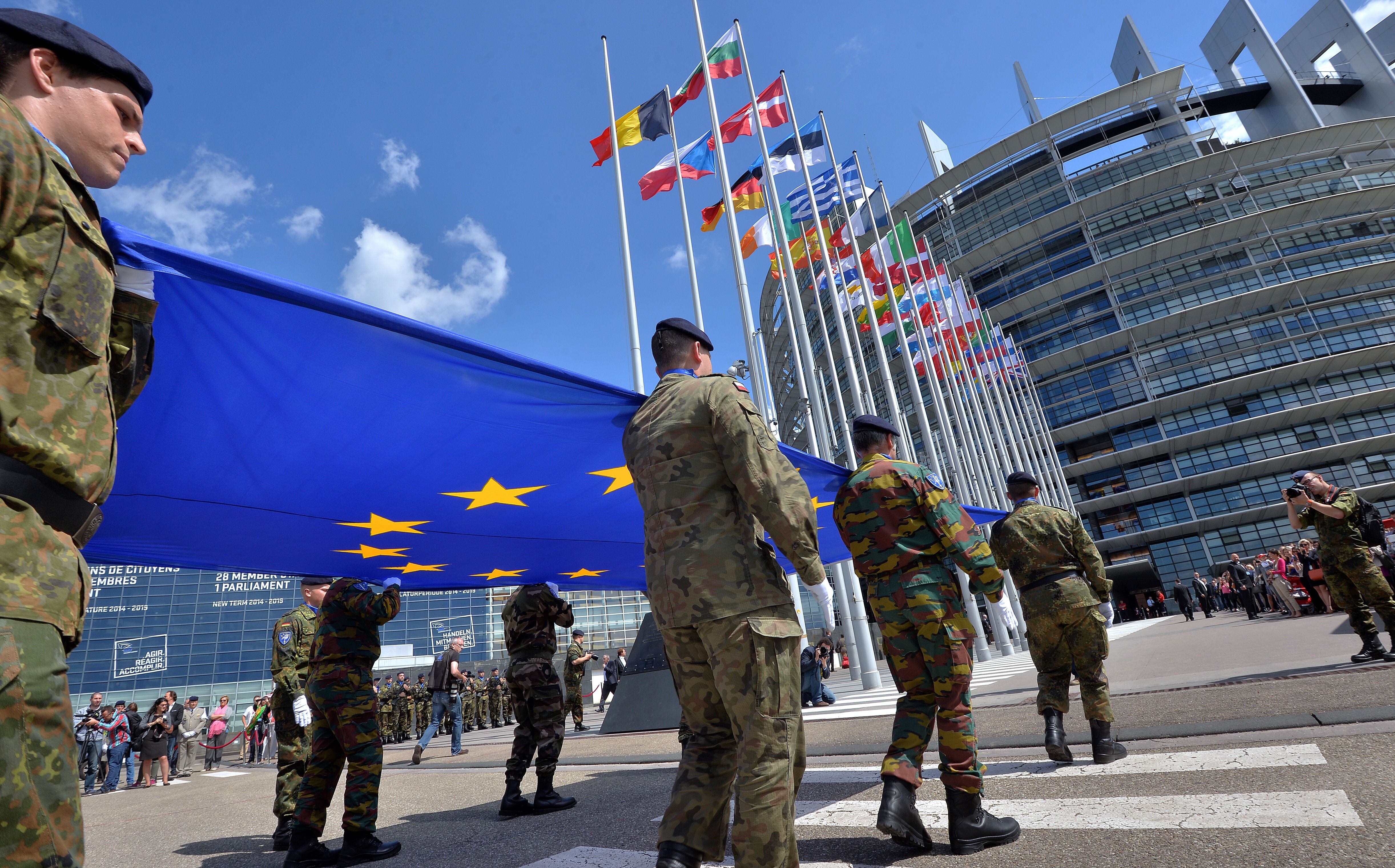COLOGNE, Germany – European Union officials have rejected U.S. demands for automatic access to the bloc’s defense budget, arguing the money is meant only to nurse military capabilities among member countries.
The reaction follows renewed pressure by senior defense officials in Washington to open EU programs and budgets – namely, the envisioned €13 billion European Defence Fund and the growing collection of programs under the Permanent Structured Cooperation, or PESCO, framework – for U.S. contractors.
Some in the Trump administration have criticized EU moves to boost the continent’s fledgling military capabilities as needless competition to NATO. At the same time, the U.S. president never tires of calling Europeans laggards on defense, accusing them of riding on the coattails of American taxpayers for their security.
Washington's latest shot against the EU's defense plans came in the form of a letter this month from Pentagon acquisition chief Ellen Lord and Under Secretary of State for Arms Control and International Security Andrea Thompson. The two complained to EU foreign policy and defense chief Federica Mogherini that draft rules for allowing non-Europeans into the bloc's programs were too restrictive, amounting to a “dramatic reversal of the last three decades of increased integration of the trans-Atlantic defense sector.”
Mogherini retorted in a press conference late Tuesday that the bloc remains open to cooperation with the United States, but that the European Defence Fund and PESCO were primarily designed to be intra-continental affairs.
“It's not defined as an instrument for partnership,” she said, noting that other avenues exist for trans-Atlantic cooperation.
She also argued that American defense companies already do more business in Europe than European companies are able to do with the U.S. military, suggesting a mismatch by design.
RELATED

At the heart of the matter lies the still-unresolved rule for permitting so-called “third-party states” into the inner sanctum of EU defense machinations. According to Mogherini, continued uncertainty on the issue creates “unnecessary agitation.” A final decision on the policy should be made “as soon as possible,” hopefully at a mid-June meeting of the EU Foreign Affairs Council, she said.
European Defence Agency chief Jorge Domecq echoed Mogherini’s remarks in an interview with Defense News on Wednesday. He likened the EU-wide defense pact to a marriage of the 25 participating member states. “In a marriage, in a couple, inviting a third person in, you have to decide the conditions.”
Whatever rules the member states will ultimately support would be guided by the question, “What is the added value of participation of this specific third country in PESCO,” Domecq said. As for the U.S. complaints about feeling left out, he said, “There is no change in the procurement rules. There is no wish to challenge cooperation.”
The agency is part of the PESCO secretariat, which means its officials help broker how the various projects come together.
According to Domecq and Mogherini, the 34 projects already on the books are progressing well. Their comments come after a study by the London-based International Institute for Strategic Studies was critical of the headway made so far. The analysis warned that the framework risks delaying urgently needed capabilities because funding and delivery time lines are still unresolved for many projects.
EU officials should begin prioritizing the most promising projects over those at risk of failure to ensure that they will have something to show for in case funding gets scarce, according to the IISS analysts.
Domecq argued that setting up requisite management structures to produce tangible outcomes for all PESCO projects will take time, given that the initial batch of initiatives was approved only in March 2018. “Capability development has never been an effort that gives results from one day to another,” he said.
At the same time, he signaled openness to the idea that some efforts could fall by the wayside over time or see a change in direction.
“In the evolution of the projects ... some might go ahead, but some member states might decide at a later stage, ‘Let’s review it, let’s merge it with another project, or let’s reduce it in scope,’” Domecq said.
The secretariat launched a call for new proposals earlier this month. Member states have until the end of July to submit their proposals.
Officials plan to skip calling for new project proposals in 2020 to allow strategic planning processes to catch up, said Domecq. The plan is eventually to get to two-year cycles in which the Coordinated Annual Review on Defence (CARD) takes up one year and the launch of new capability projects follows in the next.
Sebastian Sprenger is associate editor for Europe at Defense News, reporting on the state of the defense market in the region, and on U.S.-Europe cooperation and multi-national investments in defense and global security. Previously he served as managing editor for Defense News. He is based in Cologne, Germany.








